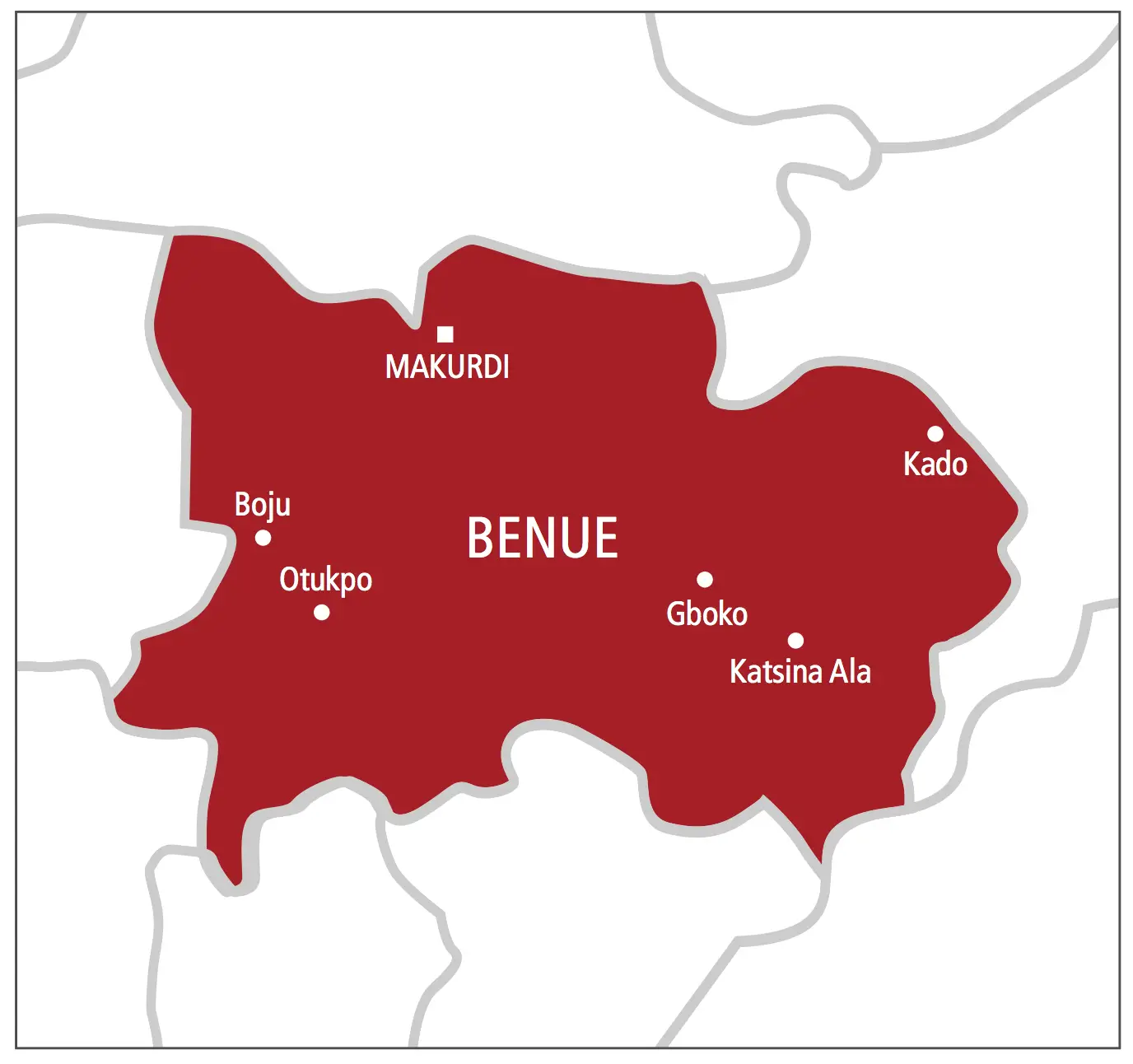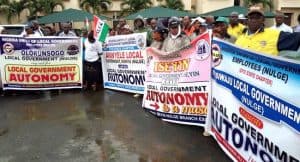
On a sunny Thursday morning, Emeka Chukwu, who sells consumables and detergents at the Ikpayongo Market in the Gwer East local government area of Benue State, sat in his shop. He was frowning at everything and yelling at all other things. The tax collectors at the market had just visited his shop and forced him to pay ‘tax’.
Emeka considers himself a victim of the circumstance and always laments how taxes are paid without any form of infrastructure giving back to the taxpayers. He has spent more than 10 years at the Ikayongo market and everything has been the same.
“The government is not doing anything to help us as business people who want to serve the society and feed ourselves. First, the Benue Internal Revenue Service officials come every six months to take their share set revenue of N3000,” said Chukwu.
“Apart from that, the sanitation agency comes every month, and we pay them N1000, but you will never see them cleaning the environment, business premises (N2000), or shop premises (N1500).
“This is what we pass through here every market day we are made to pay taxes to different individuals, in one market day we pay tax to 6-10 different groups, some come in the morning others in the afternoon, they will harass or seize your goods if you don’t pay”
Emeka is not only pained about giving the values of his sweats to people who had no idea how he made them, but also the fact that there are several areas in the market which require rehabilitation.
Speaking with bitterness, he said there exists a connection between the rise in the price of commodities and the amount of tax paid by business owners.
“What we pay affects the price of our goods, and we always try to recover from what we give them. I can’t stay here to sell and pay just taxes. There is always an increase in the selling price to accommodate money for the multiple taxes we pay.”
Local Government Collects Tax and Goes to Sleep
When Richard Kyum, the overseer (Tor-Kasuwa) at the Ikpayongo market, realized that the rate of tax collection is reaching a stratospheric proportion, the 55-year-old man moved to draw the attention of the local government.
However, all his efforts were dashed, leaving the marketers at the mercy of the tax collectors he described as “killers of business.” He noted that there are more than necessary groups of people who collect taxes in the market., and “the marketers have complained severally of their inability to cope with the multiple taxes they have been made to pay,” said Kyum.
“In this market, from 11am until the close of market at 5 p.m., different batches of tax collectors will come, numbering from about 1-4, as the head of the market, I don’t even know where these monies are taken. Truth be told, these multiple taxations have slowed the growth of the market.”
Richard Kyum noted that despite the plethora of taxes levied on the marketers, the result yielded nothing positive.
“The infrastructural status of the market looks deplorable, nothing is here to show for it, the local government collects tax and goes to sleep,” he said.
Despite Government Policies, Illegal Taxes Still Persist
In 2019, In a bid to curb illegal and multiple taxation in the state, the Benue State governor announced the employment of 375 to block revenue leakages and illegal tax collection points in the state. Then in 2021, the secretary to the state government, Tony Ijoho, issued a communique to stakeholders declaring that “local government chairmen must desist henceforth from multiple taxations in their council areas, thereby discouraging traders from coming into Benue State to buy products, which has led to waste and a decline in the internally generated revenue (IGR) base of the state.”
The communiqué further stated that anyone who violates the Revenue Law will face consequences, regardless of how highly placed they may be.
Also in 2022, the Benue State House of Assembly passed the Reversed Benue Internal Revenue Bill, and Governor Samuel Ortom, after signing the Bill at the Benue People’s House, Makurdi, the state capital, stated that all operators of illegal revenue collection checkpoints in the state will be treated like armed robbers when apprehended.
All attempts to speak with the chairman of the Benue Internal Revenue Service proved abortive after several visits to the office at the Benue State Capital. Also, the media aide to the BIRS chairman Jacob Suswam did not respond to calls and text messages sent to him.
The Experience in Makurdi Market
“It has been a traumatizing experience for my business,” cried Ewache Caroline, the 57-year-old woman who sells beans and corn in wholesale and retail at Wurukum market in Makurdi Local Government Area of Benue state. She said the hefty taxes she pays has melted down her business.
“Some days we pay tax here to the tune of N3000; 50% of my gain usually goes into paying taxes.”
The experience has forced the old woman to find an alternative for trading, because “it looks more like coming here [means] trading and using your profit to pay tax to different unknown individuals,”she said.
Blessing Akosu, 31, a mother of three who sells fruits at the market, revealed that an average marketer pays taxes to as many as seven different individuals daily, “ranging from N200 to N1000. For me, the tax I pay does not really matter to me, but I continue to add the price of my goods to accommodate the tax I pay.”
Worst Experience at Gboko Market
On a wet Saturday afternoon at the Gboko Central Market in Gboko Local Government Area of Benue State, Stella Terwase who just retrieved her sized goods was sweating and angry.
She narrated how she has not been able to sell a single product after arriving at the market as early as 8 am due to what she labelled as “illegal taxation by illegal people.”
“It has been a painful day for me,” said Terwase. “The Agberos seized my goods this morning because I had refused to pay them. Every day I pay nothing less than N1500 as tax here. Calculating it by thirty or thirty-one days is a huge amount.”
The story is the same with Lydia Anjov, 67, who sells fermented locust beans (Nune) at the Gboko main market. She explained how, despite low sales and the economic downturn, they are always made to pay taxes to different unknown individuals.
“We pay tax here to numerous individuals, some of whom we don’t even know where they are coming from.”






